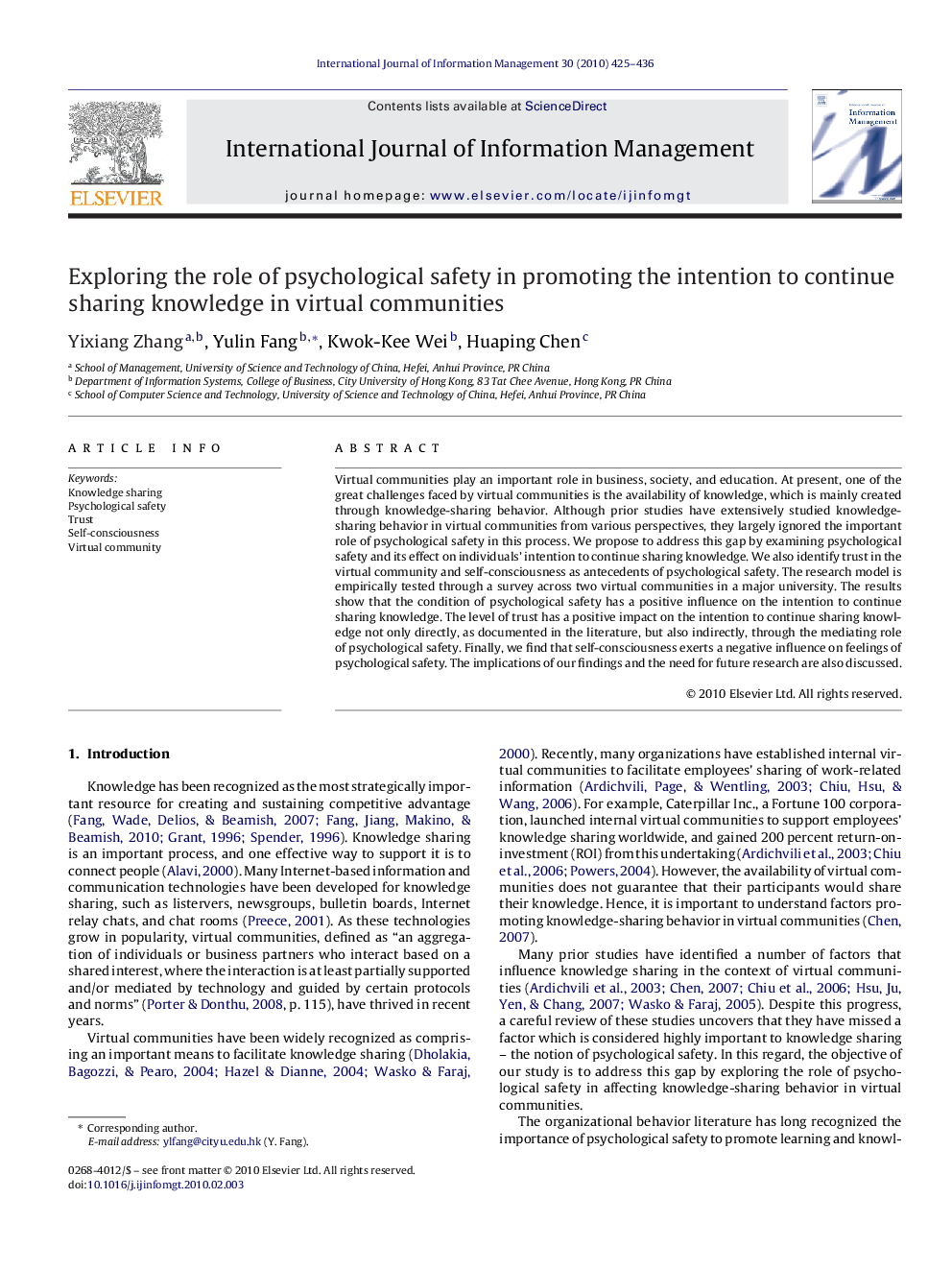| Article ID | Journal | Published Year | Pages | File Type |
|---|---|---|---|---|
| 1026080 | International Journal of Information Management | 2010 | 12 Pages |
Virtual communities play an important role in business, society, and education. At present, one of the great challenges faced by virtual communities is the availability of knowledge, which is mainly created through knowledge-sharing behavior. Although prior studies have extensively studied knowledge-sharing behavior in virtual communities from various perspectives, they largely ignored the important role of psychological safety in this process. We propose to address this gap by examining psychological safety and its effect on individuals’ intention to continue sharing knowledge. We also identify trust in the virtual community and self-consciousness as antecedents of psychological safety. The research model is empirically tested through a survey across two virtual communities in a major university. The results show that the condition of psychological safety has a positive influence on the intention to continue sharing knowledge. The level of trust has a positive impact on the intention to continue sharing knowledge not only directly, as documented in the literature, but also indirectly, through the mediating role of psychological safety. Finally, we find that self-consciousness exerts a negative influence on feelings of psychological safety. The implications of our findings and the need for future research are also discussed.
